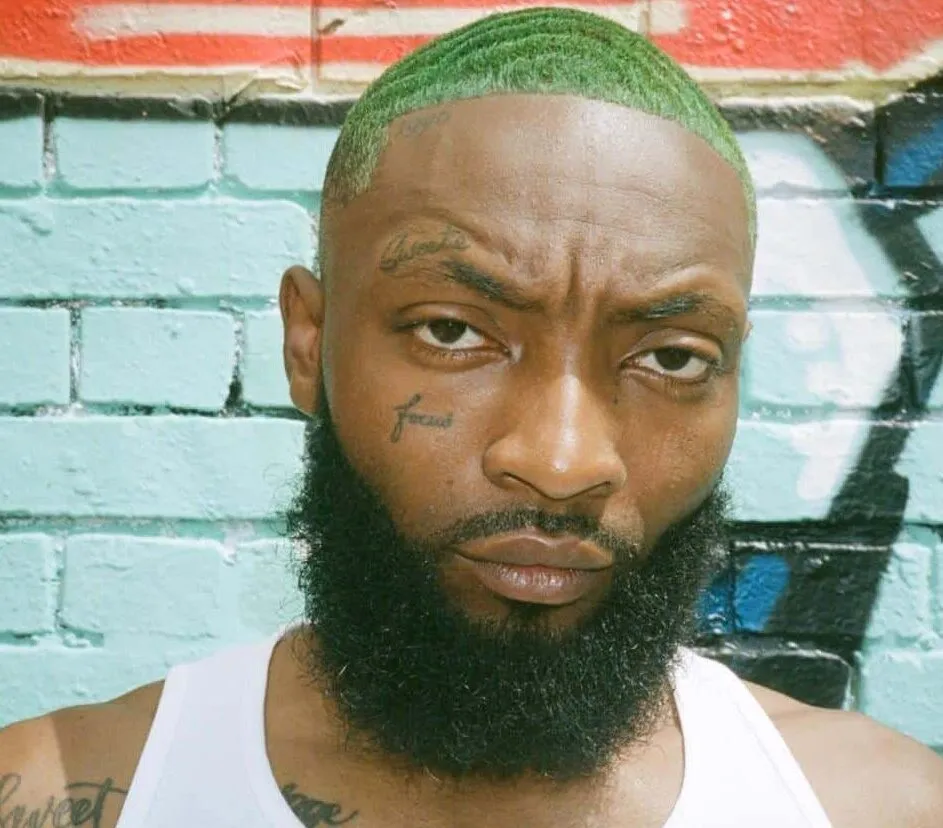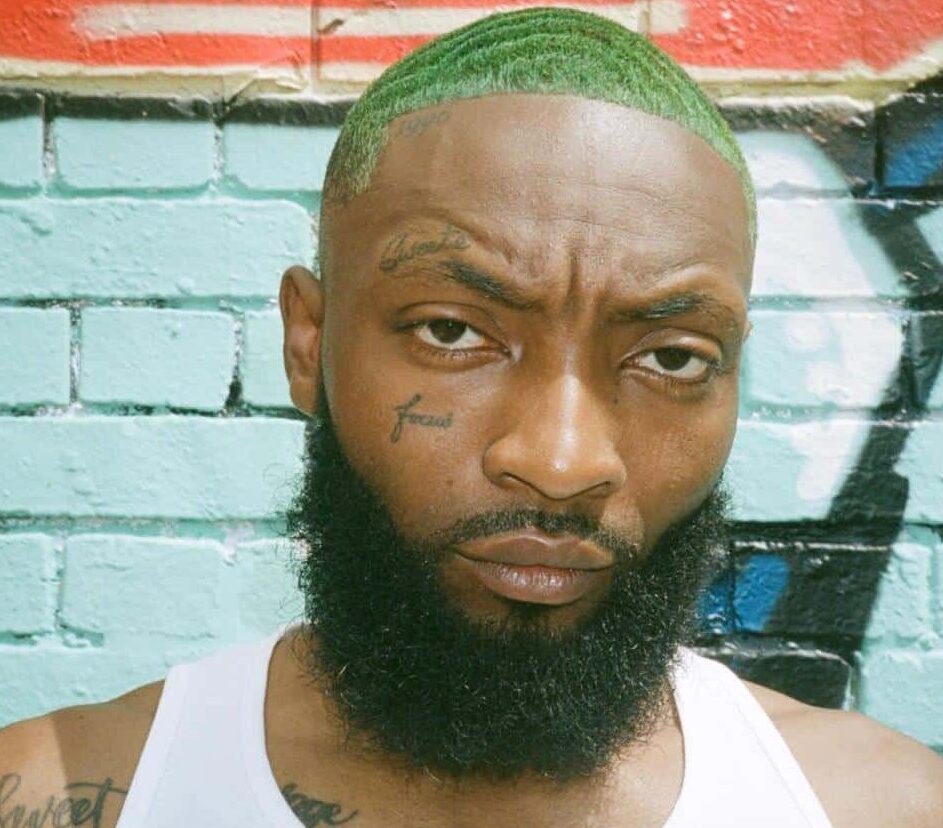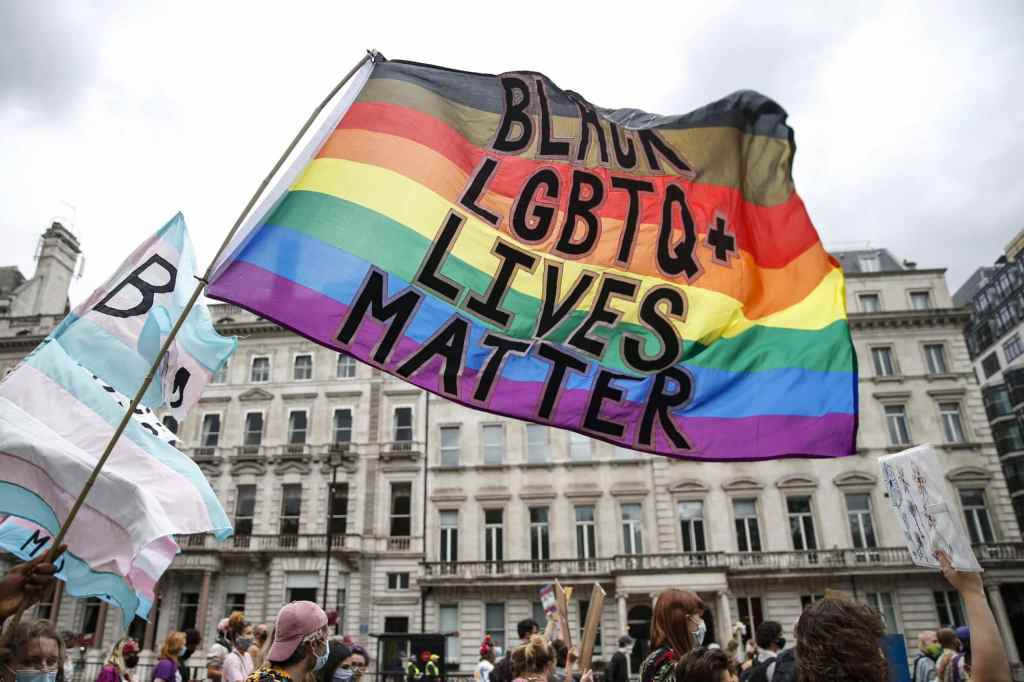 October 25 2024, 08:15
October 25 2024, 08:15 Gay rapper Carter the Bandit sees Black History Month as a celebration of life itself.
It’s about honouring the lives that contributed to the liberation of marginalised communities and the joy of “living in our skin,” the musician tells PinkNews.
Black History Month has been an annual event in the UK since 1987. Every year, the achievements of Black Britons are highlighted, but often, Black LGBTQ+ voices are overlooked.
One voice determined to be heard, and not only during Black History Month, is that of Carter the Bandit. Born and raised in Peckham, South London, he has both Ghanaian and Jamaican heritage.

He is proud of his identity as a Black gay man, summarising it as “excellent,” “sexy,” and “crazy.”
The rapper, who sports an unmissable tattoo across his knuckles that spells out ‘love’, finds inspiration in civil rights leaders such as Martin Luther King Jr, whose acclaimed “I Have a Dream” speech resonates with him.
“I can relate to that because everyone has a dream,” he explains.
For Carter, it’s not just about personal success, it’s about contributing to societal change and uplifting his community.
He recalls the moment when he was about 15, and his mum asked him about his sexuality. “It was kind of scary,” he admits, especially given the cultural stigma surrounding homosexuality in some Black communities. She wasn’t overjoyed but she wasn’t angry either. “I would say it went fine,” he recalls.

The stigma, he explains, is due to people’s upbringing in some of those communities. “It’s always been taught that it’s wrong, especially in [some] cultural backgrounds. That’s all you’ve been taught, so that’s all you know.”
Throughout his youth, he has battled a “mix of emotions,” but as he got older and started going to clubs, he met “a lot of gay Black people” from whom he learned.
A 2021 study found that queer people of colour in the UK feel unwelcome in LGBT+ spaces, with many experiencing discrimination, harassment and abuse. However, that has not been Carter’s experience. But while he always feels comfortable in London’s gay clubs, it “might have been different back then”, the rapper acknowledges.
At this year’s UK Black Pride, founder Lady Phyll emphasised that there is “no time to stand still” when it comes to racism and discrimination in the UK. Her words came in the wake of far-right riots that exploded across the country in the summer.
‘It’s the way we are naturally brought up’
But as far as Carter is concerned, society has become more welcoming. “Before, everyone thought gay people would be judgmental or b**chy. Of course, some of them are, but once you peel the layers back, everyone is just protecting themselves.”
Over the years, his appearance has evolved to reflect his identity as a proud, gay, Black rapper. Despite feeling that society is more welcoming, he still draws attention to one major misconception: the assumption that gay Black individuals are inherently rude.
“It’s the way we are naturally brought up. Everyone has attitude, but gay people have attitude so much more. It’s natural but I also think it’s a defence mechanism.” His solution to breaking down the misconception is simple: “It just takes a conversation.”
He’s aware that his music has been embraced by young members of LGBTQ+ community. “This is something that’s helping the younger generation,” he says, and knowing he’s making an impact “feels amazing”.
